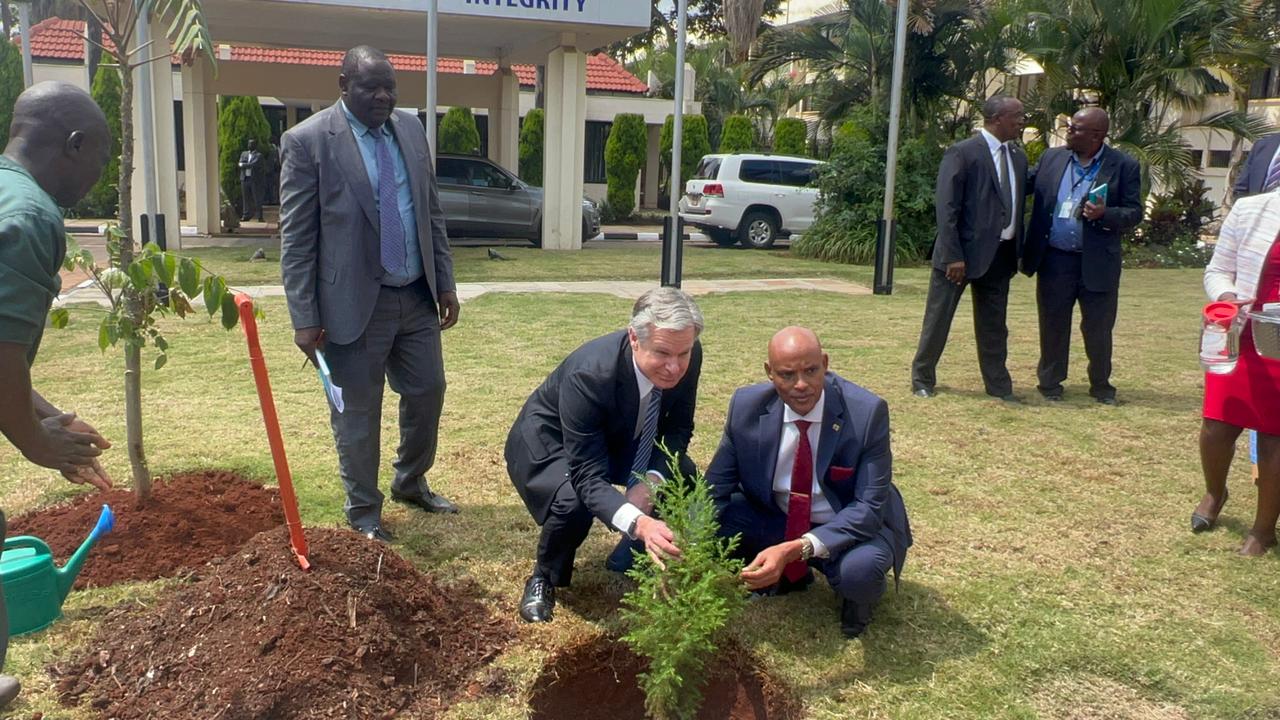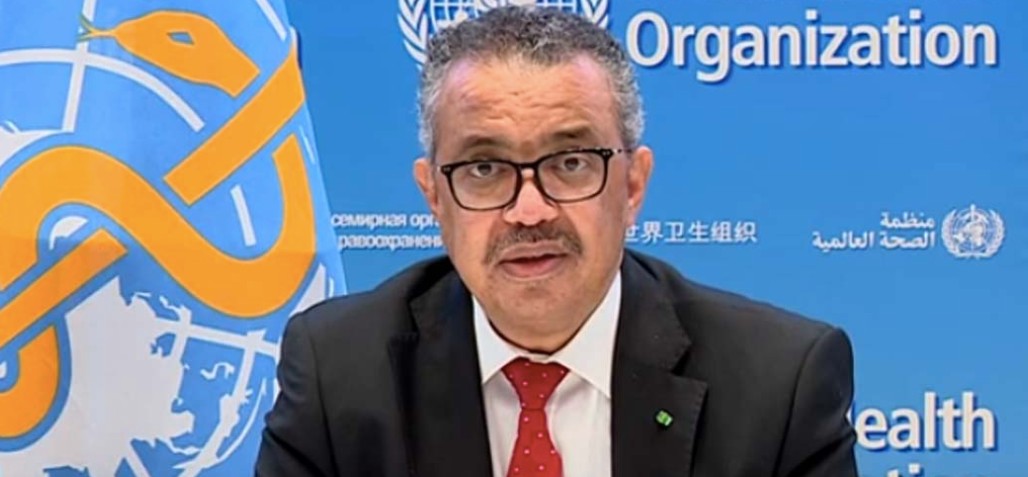Kevin Kang’ethe’s extradition to US reflects growing trend in cross-border criminal cases

Since 2010, the US has extradited about 10 people to face criminal charges including assault, forgery, child pornography, and murder.
Kevin Kang'ethe's extradition to the United States to face murder charges for allegedly killing his former girlfriend, Margaret Mbitu, in October of last year adds to the growing list of suspects extradited for past criminal acts.
Since 2010, the US has extradited about 10 people to face criminal charges including assault, forgery, child pornography, and murder.
More To Read
- US court denies Kevin Kang'ethe bond after extradition in murder case
- Nairobi court approves extradition of murder suspect Kelvin Kangethe to the US
- Murder suspect Kelvin Kang'ethe gets 21 more days in custody
- Prisons authority rebuts Kelvin Kangethe's incommunicado claims
- Murder suspect Kelvin Kang'ethe fires lawyers, alleges torture in prison
- Murder suspect Kelvin Kang'ethe's escape: Internal Affairs Unit takes charge of probe
The trend shows that nearly every year, the US makes extradition requests for persons who commit crimes in the country and flee to Kenya to hide.
On May 5, 2010, the US filed an extradition request for Anastacia Oluoch, who was accused of assault. A status report of the matter shows the extradition proceedings were initiated and concluded and the file closed.
Ms. Oluoch was accused of assaulting 90-year-old John Taylor during her employment as a caregiver and charged in Baltimore court. However, before the case concluded in July 2007, she jumped bail and fled to Kenya.
The following year, on August 9, the US made another request for Fumiaki Kayama, a Japanese national, for forgery claims. The US initiated the extradition proceedings, arrested the fugitive, and arraigned him in court.
However, after receiving a bond and obtaining arrest warrants, the fugitive absconded.
On July 28, allegations of child pornography led to another request for Brian Musomba Maweu.
The fugitive surrendered on September 25, 2014, and extradition proceedings concluded. The fugitive was extradited to the US in April 2015, and the file was closed.
He pleaded guilty to the charges and was sentenced to life in prison.
 Director of Criminal Investigations Amin Mohamed during a press conference at the DCI headquarters in Nairobi on June 12, 2024, with Federal Bureau of Investigations (FBI) Director Christopher Asher Wray. (Photo: EV)
Director of Criminal Investigations Amin Mohamed during a press conference at the DCI headquarters in Nairobi on June 12, 2024, with Federal Bureau of Investigations (FBI) Director Christopher Asher Wray. (Photo: EV)
“In connection with his guilty plea, Maweu admitted that, while using the online alias “Catfish,” he posted 121 messages on the Dreamboard website—a private, members-only online bulletin board that promoted paedophilia and encouraged the sexual abuse and exploitation of very young children in an environment designed to avoid detection by law enforcement—including 34 posts containing child pornography that he produced. Maweu was considered a “Super VIP” member of Dreamboard, a designation that was given to members who were prominent on the site and produced their own child pornography,” court documents in the US show.
On April 12, 2013, two years later, the US made yet another request for Odiko Odak's extradition after accusing him of preparing and presenting a false tax return.
A local court issued his arrest warrant and started the extradition process, but his arrest is still pending.
Still, on the same day, the US made a similar request for Wilfred Christopher Olalo, who was accused of homicide by motor vehicle after causing a multiple-car crash that led to the death of 76-year-old Joseph O’Brien two years later.
According to court papers, the suspect was completely drunk at the time of the accident; he appeared before a judge in April 2006, pleaded guilty to drunk driving, and was scheduled for sentencing at a later date. He did, however, flee to Kenya before being sentenced.
Nine years after the suspect's arrest, the authorities initiated, concluded, and closed his extradition proceedings.
The US requested Terry Ray Krieger's extradition on June 24 of the following year due to his alleged distribution of pornographic material.
The court commenced his extradition proceedings after charging the suspect with criminal offences and convicting him to serve 50 years' imprisonment.
 Murder suspect Kevin Kinyanjui Kang'ethe pictured after his arrest on February 13, 2024. (Photo: DCI)
Murder suspect Kevin Kinyanjui Kang'ethe pictured after his arrest on February 13, 2024. (Photo: DCI)
“By dint of the provisions of Kenyan law that prohibit extradition of fugitives serving imprisonment terms, extradition proceedings stayed,” the document states.
In 2016, China removed some 37 nationals from Kenya after they were arrested for cybercrimes on Kenyan soil. Beijing argued the group had committed fraud in China.
Kenya has also made a few requests to the US government; on September 6, 2013, it requested the extradition of Veronica Wanjiru Kariuki for allegedly giving false information to a public officer.
The suspect has been accused of abducting her child to the US from her father using forged documents.
The matter is still pending.
In the second case, Kenya sought to have Matthew Lane Durham, who had fled the country after investigations into his alleged defiling of a number of children while serving as a volunteer worker at Upendo Children's Home in Ruiru, begin.
“In collaboration with the US Embassy in Nairobi, 12 witnesses, including 8 victims, two doctors, and a police officer, travelled to Oklahoma, US, and testified against the fugitive. The fugitive has since been sentenced to a prison term of over 20 years. An appeal was also dismissed,” the document adds.
In September 2014, Kenya managed to extradite the tycoon and architect of the Sh7.6 billion Triton Oil scandal, Yagnesh Devani, to stand trial in the country.
Mr Devani fled the country for India and later moved to the UK after the scandal came to light in 2008.
The suspect was extradited to Kenya on January 23 this year and charged at Milimani law courts after 15 years of being on the run.
In another case, the status of which the Eastleigh Voice could not immediately confirm, Kenya listed a case of great public interest in which a former employee of the US Embassy in Nairobi was accused of causing death by dangerous driving, among other cases for which it was seeking extraditions.
The government had sought to establish whether the fugitive enjoyed diplomatic immunity before filing the extradition request.
 Director of Criminal Investigations Amin Mohamed and Federal Bureau of Investigations (FBI) Director Christopher Asher Wray plant a tree during their engagement at the DCI headquarters in Nairobi on June 12, 2024. (Photo: EV)
Director of Criminal Investigations Amin Mohamed and Federal Bureau of Investigations (FBI) Director Christopher Asher Wray plant a tree during their engagement at the DCI headquarters in Nairobi on June 12, 2024. (Photo: EV)
In the matter, Joshua Wade was accused of fleeing the country after causing the accident.
“The fugitive was an employee of the US Embassy in Nairobi. He was involved in a road accident where a person died. The fugitive was blamed for the accident. He hurriedly sold his belongings and fled the country,” the document adds.
This year, the DPP received the formal extradition request on Wednesday, January 31, from the US, through the Office of the Attorney General and Department of Justice, from the Office of International Affairs, Criminal Division, Department of Justice, USA, for the arrest and extradition of Kang'ethe.
According to the Extradition (Contagious and Foreign Countries) Act, a diplomatic representative or consular officer of any country may submit a requisition to the Minister for the surrender of a fugitive criminal who is in or suspected of being in Kenya. Upon receipt of this requisition, the Minister may, by order, notify a magistrate of the requisition and require the magistrate to issue a warrant for the arrest and detention of the fugitive criminal.
If the Minister is of the opinion that the offence is one of a political character, he may refuse to make an order and may also at any time order a fugitive criminal accused or convicted of such offence to be discharged from custody.
If not, the Minister sends it to the Attorney General for guidance and action.
Top Stories Today












































